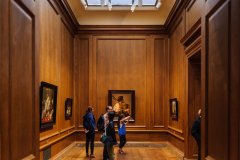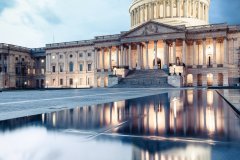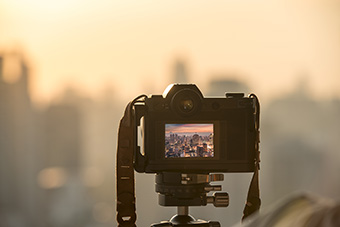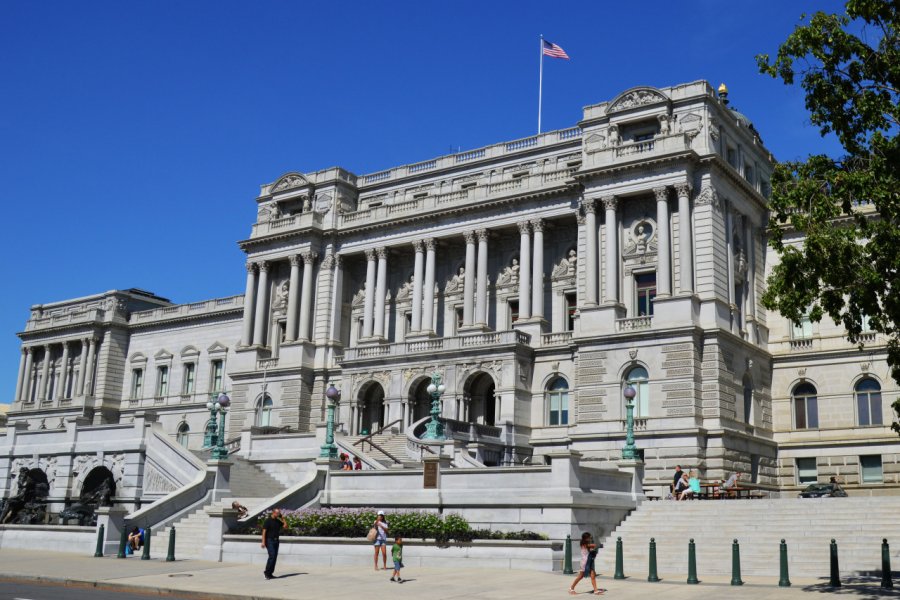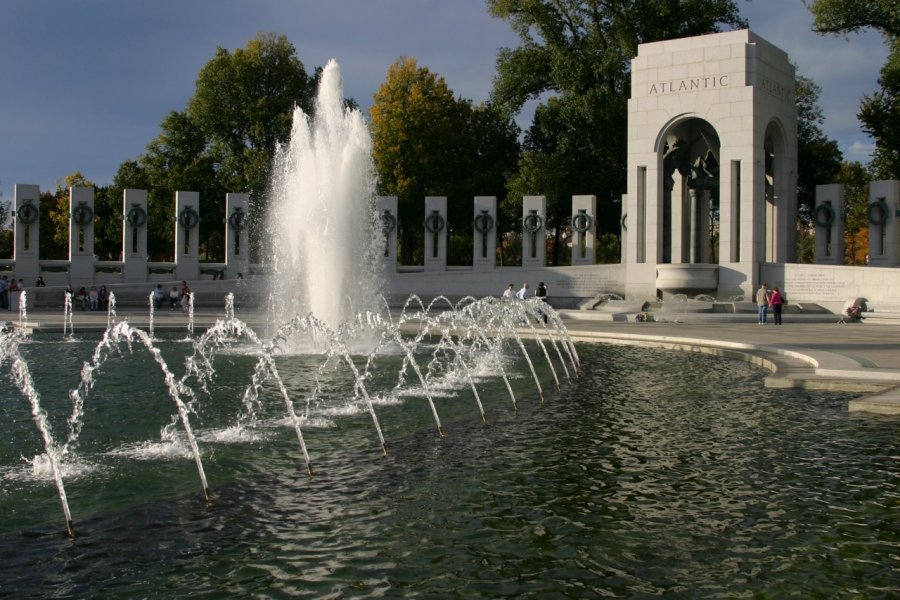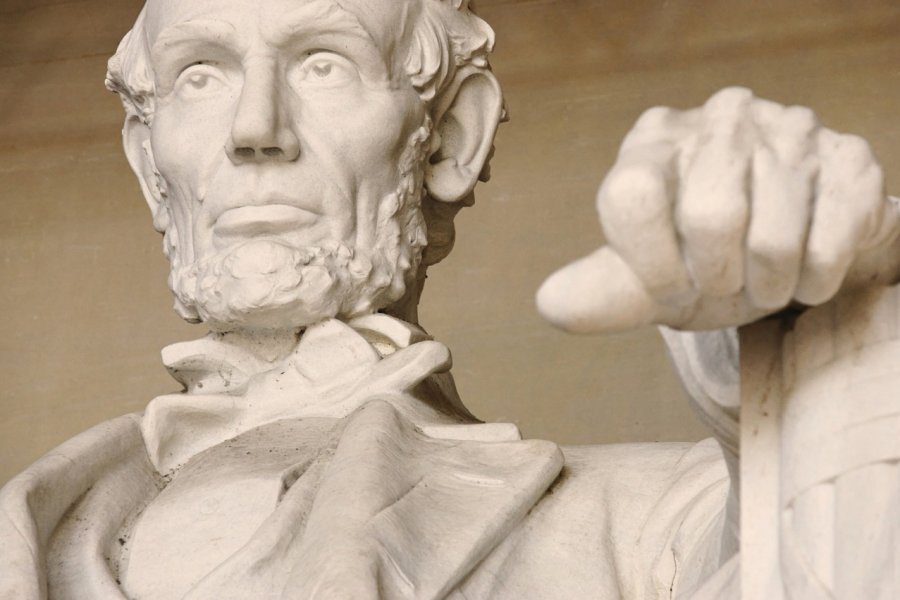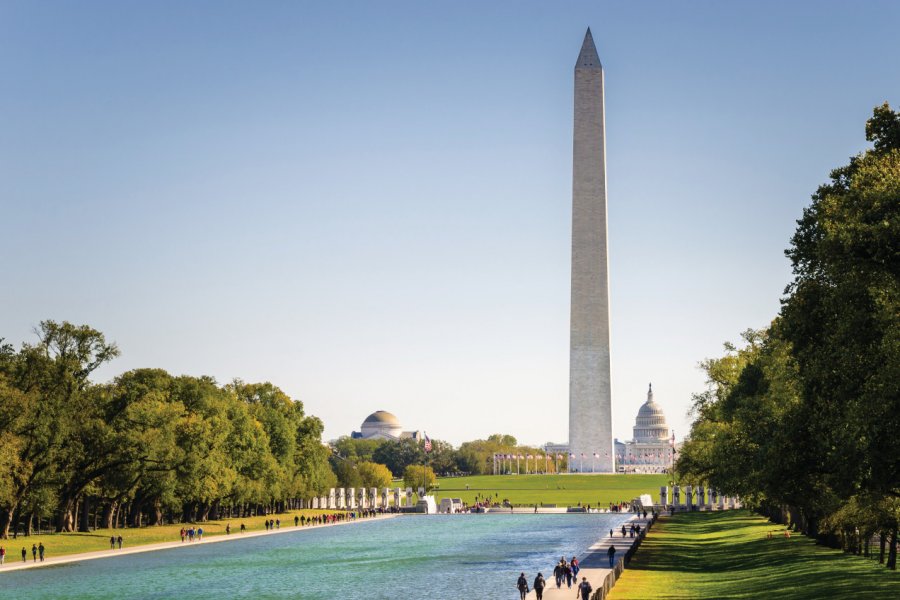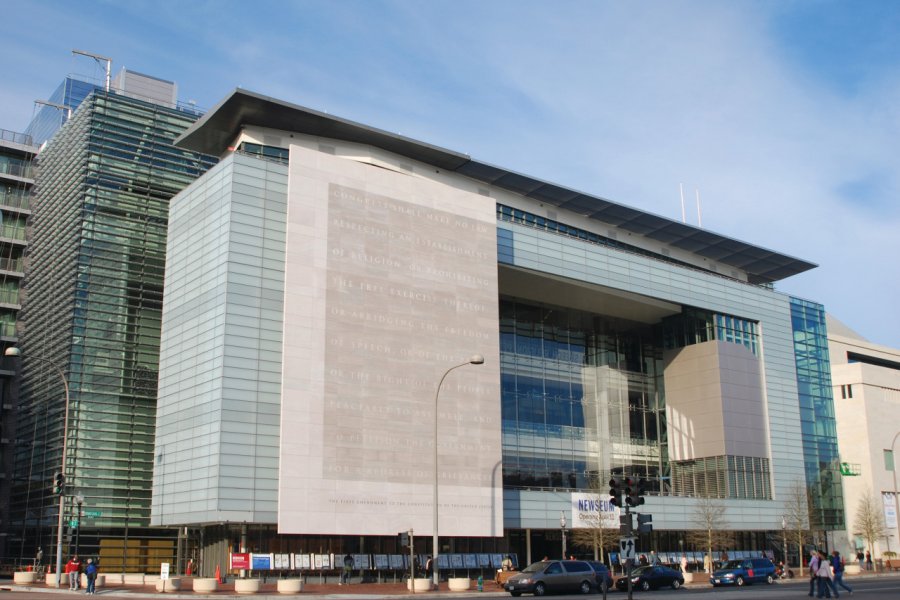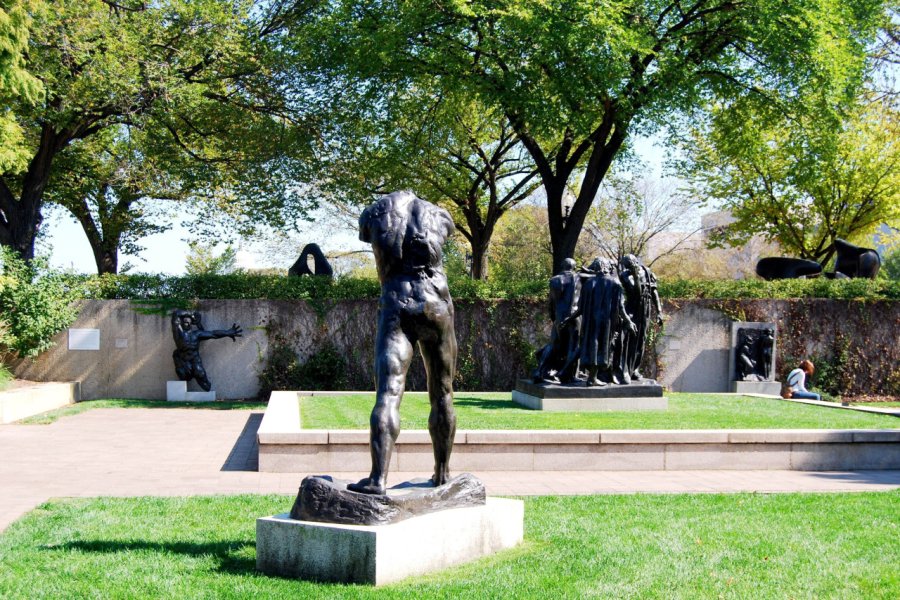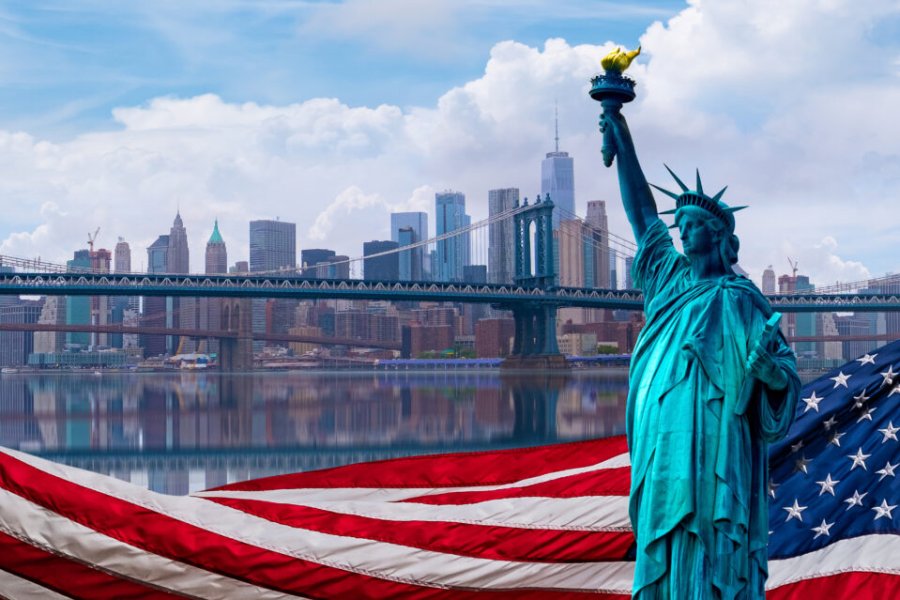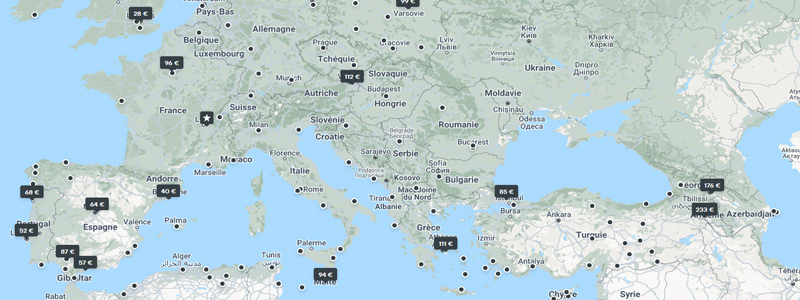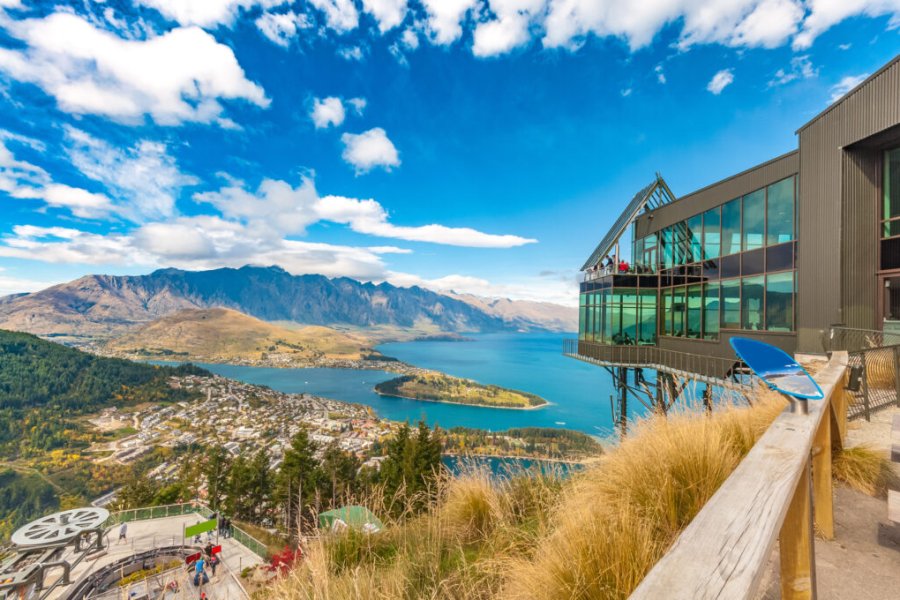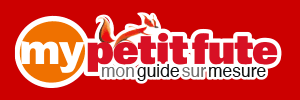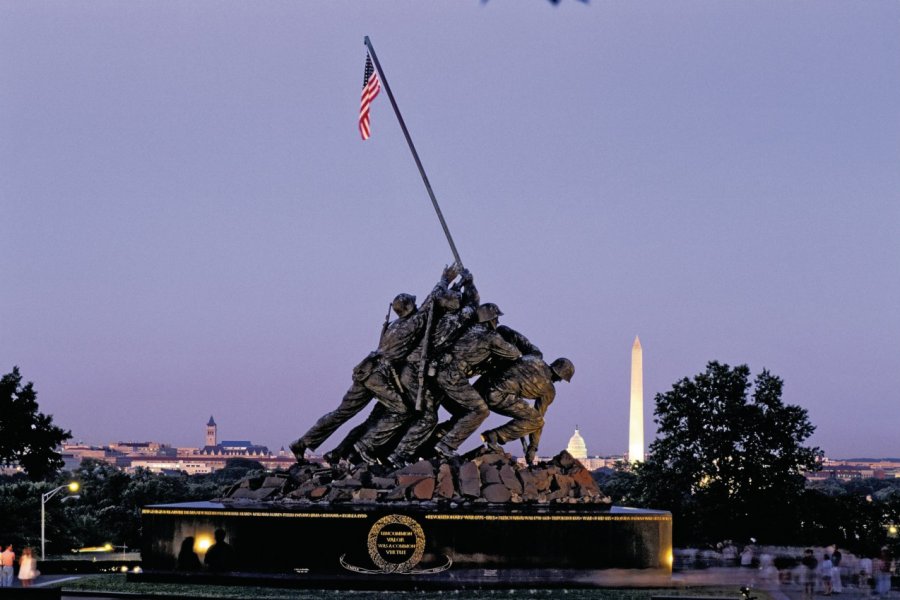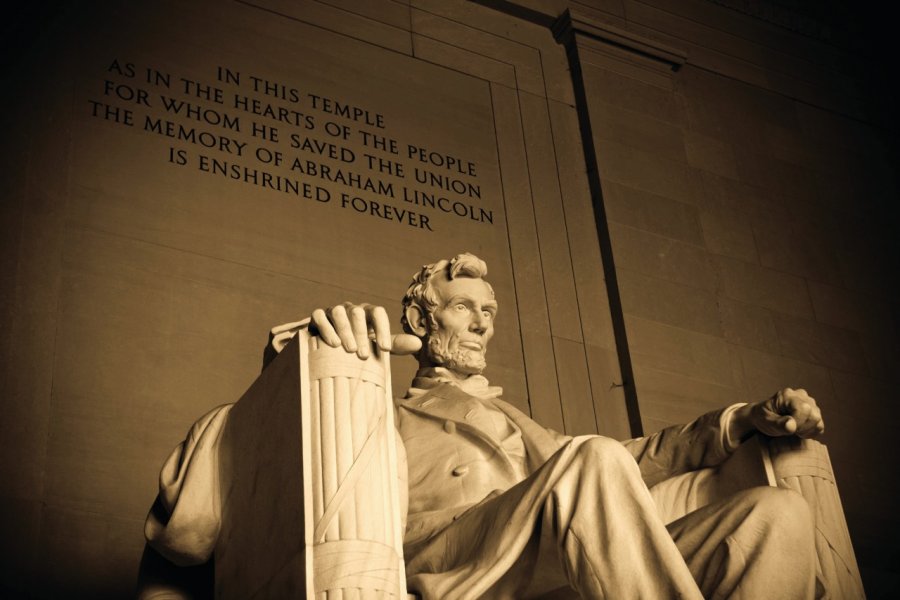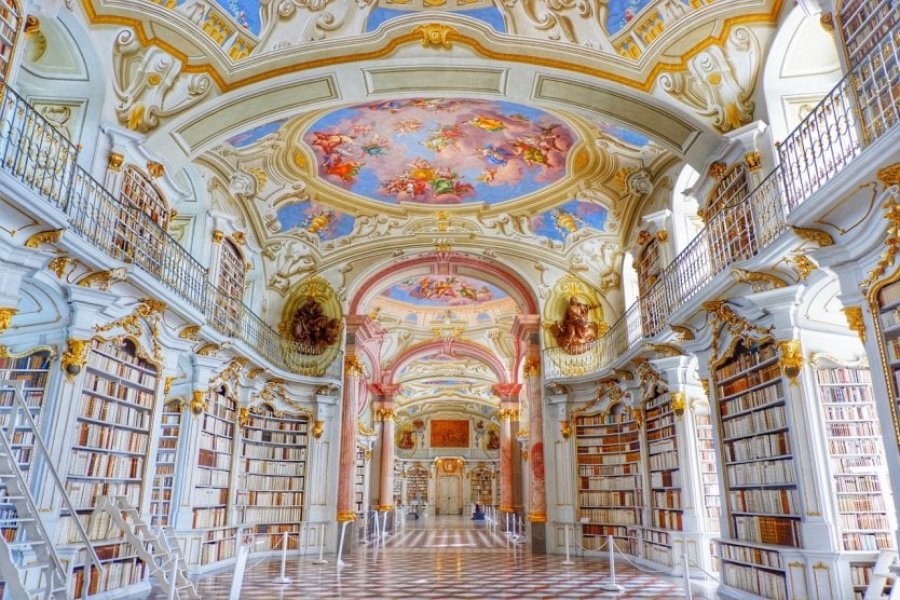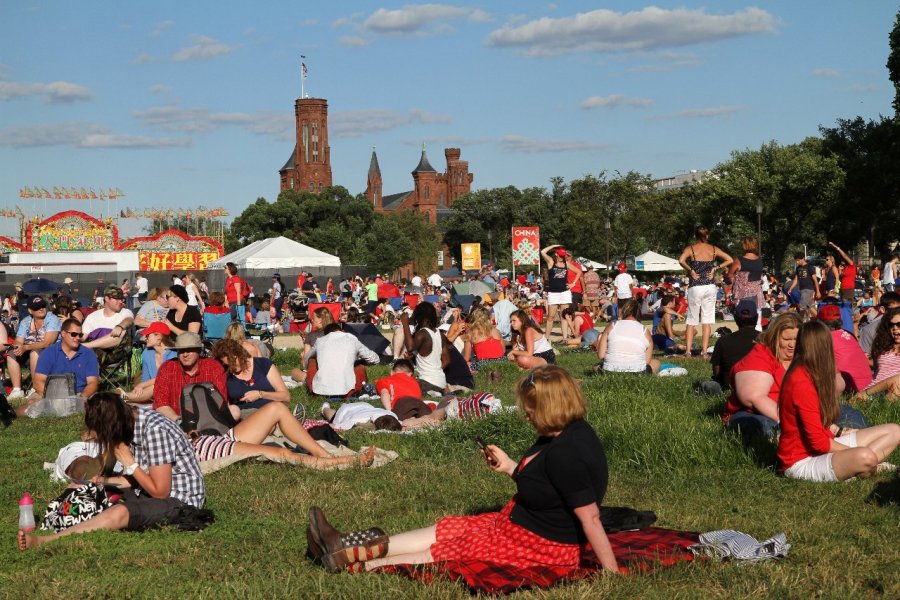Travel Guide Washington, D.c.
Washington, D.C., the federal capital of the United States of America, was built on the banks of the Potomac River, according to the plans of a French architect. We bow before the Capitol, the Lincoln Memorial and Jefferson Memorial, the White House and the Pentagon. No skyscraper district in Washington, but the Smithsonian Institution, the "national granary", includes about fifteen museums including the National Museum of Natural History, the National Portrait Gallery, the American Art Museum to discover with your tour guide Washington D.C. in hand! Other particularly interesting sites include the National Museum of the Amerindians, the Old Post Statio and the Library of Congress. Washington is a city of museums, but it also invites you to discover typical and picturesque neighbourhoods, including Georgetown with its lively streets, Adams Morgan, the headquarters of the intellectuals and partygoers Dupont Circle, a residential district with several boutique hotels. In addition, there is an offer of gastronomic tables and many green spaces. It is pleasant to walk in East Potomac Park, 120 ha on a peninsula in the heart of the city and the Potomac River, the American Botanical Garden (U.S. Botanic Garden) with 10,000 varieties of orchids, not to mention Anascostia Park for picnics and swimming (pools). The discovery of Kenilworth Park with its water gardens, exhibitions, an 18-hole golf course and 3 marinas is worth a full day. Efficient: the city tour by double-decker bus, double-decker bus with "Hop On Hop Off" or by bike. And enjoy yourself: embark on a boat trip on the Potomac.
What to visit Washington, D.c.?
Suggested addresses Washington, D.c.
When to go to Washington, D.c.?
When to go? Washington, D.C. is a vibrant, year-round city that is great to live in and visit in all four seasons, especially in the spring when the cherry trees along the famous National Mall, which stretches from the Washington Monument to the U.S. Capitol, are in bloom. The Cherry Blossom Festival takes place in the city every year in March and April. It is a must for anyone visiting Washington in the spring.
Weather at the moment
Washington City's climate is humid subtropical, that is, temperate, with no dry season and a hot summer. Spring and fall are warm to moderate with daily temperatures around 20°C. In winter, the warm subtropical climate becomes cold continental with low temperatures (on average 2 °C in January) and snow. Summer tends to be very hot and humid, even scorching, with temperatures around 32 °C and occasional thunderstorms. Washington's weather is therefore quite marked in both summer and winter.
If you book in advance, you can find a hotel in Washington for US$90-100, in any season. Be careful, during the high tourist season, in July and August, prices can be multiplied by three. You can eat well for less than 20 US$. On the other hand, public transportation is more expensive than in France (around US$ 2.50 per ticket). Entrance to museums in Washington is about 12 US$. And as they are numerous, your museum budget is to be considered!
France is still part of the Visa Waiver Pilot program which allows French nationals to enter the United States without a visa for a maximum stay of 90 days. To stay in Washington, all you need is a valid biometric passport, a non-refundable round-trip ticket to the United States and no intention of extending your stay. You must also fill out the ESTA form on the Internet at least 72 hours before departure and pay the US$14 fee that accompanies the form (https://esta.cbp.dhs.gov). For a stay of more than 90 days, the visitor must have a visa. Several types of visas exist (student, work, etc.), but they are all quite difficult to obtain. Consult the website of the U.S. Embassy in France.
There are no particular health problems in the United States, even less if your stay is limited to Washington. The capital is well provided with hospitals. The only problem will be the very high fees charged. In case of emergency, call 911 from any phone, even cell phones that have no units left will work in this case. You will be taken care of more quickly if you show proof of credit (credit card or insurance). No vaccination certificate is required to enter the United States. Persons undergoing medical treatment will need a prescription to prove that they are not importing illegal drugs.
Practical information
- When to travel?
- Weather forecast
- Budget
- Formalities
- Health
- How to travel by yourself?
- How to get organized?
- Getting around
Media
How to go to Washington, D.c.? Our advice & tips
You can choose a stay in Washington combining flight and hotel, or flight, hotel and visits to monuments, museums and main points of interest, or a tour including Washington, the District of Columbia, Maryland and Virginia, the two neighboring states. Tour operators offer several attractive packages in this region.
There are direct flights to Washington. Once there, it is very easy to be autonomous, Washington is easily accessible on foot or by public transport. The locals are very welcoming and will not fail to guide you in your visits. The only thing you need to do in advance is to make hotel reservations to ensure that you get the right rate.
Like New York or San Francisco, Washington is very well served by public transportation. Don't overlook the distances from one neighborhood to another, the city is large. The subway is very efficient. It is interesting to take a weekly pass if you are staying for a long time and moving around a lot, which you will certainly do. It is forbidden to eat or drink on the trains and in the subway stations.
